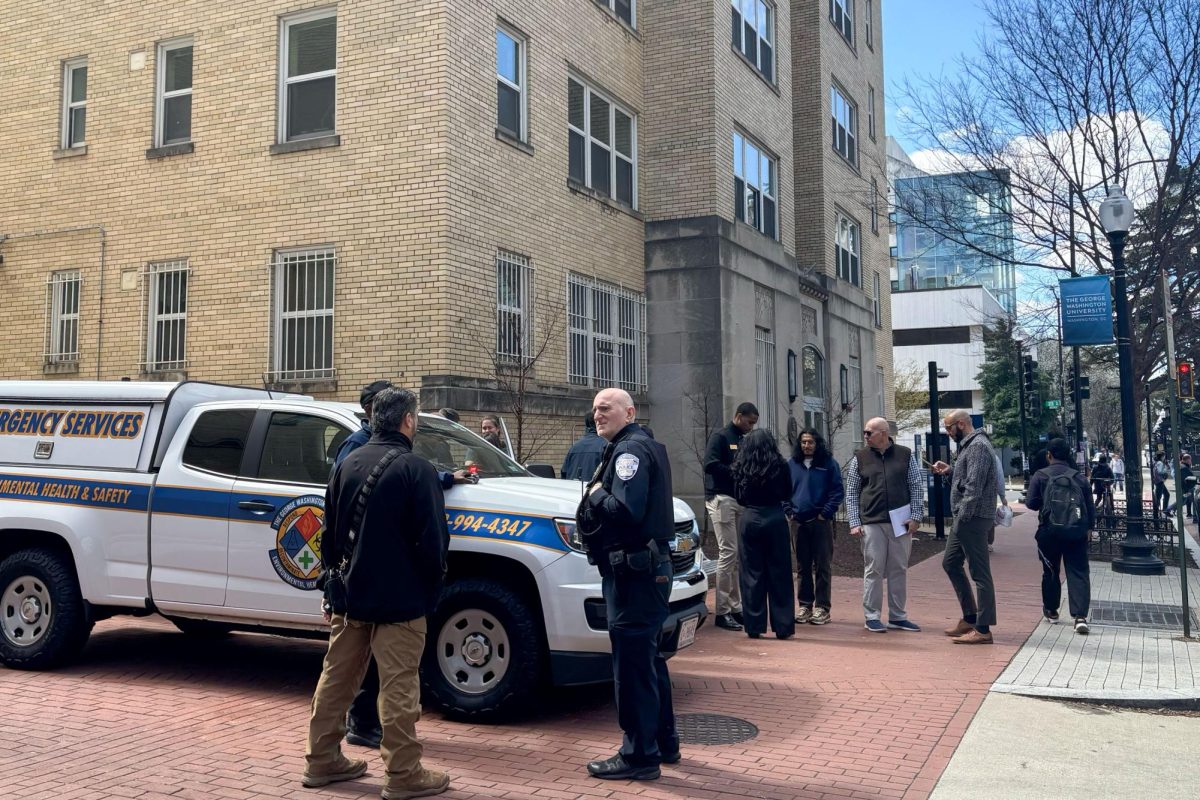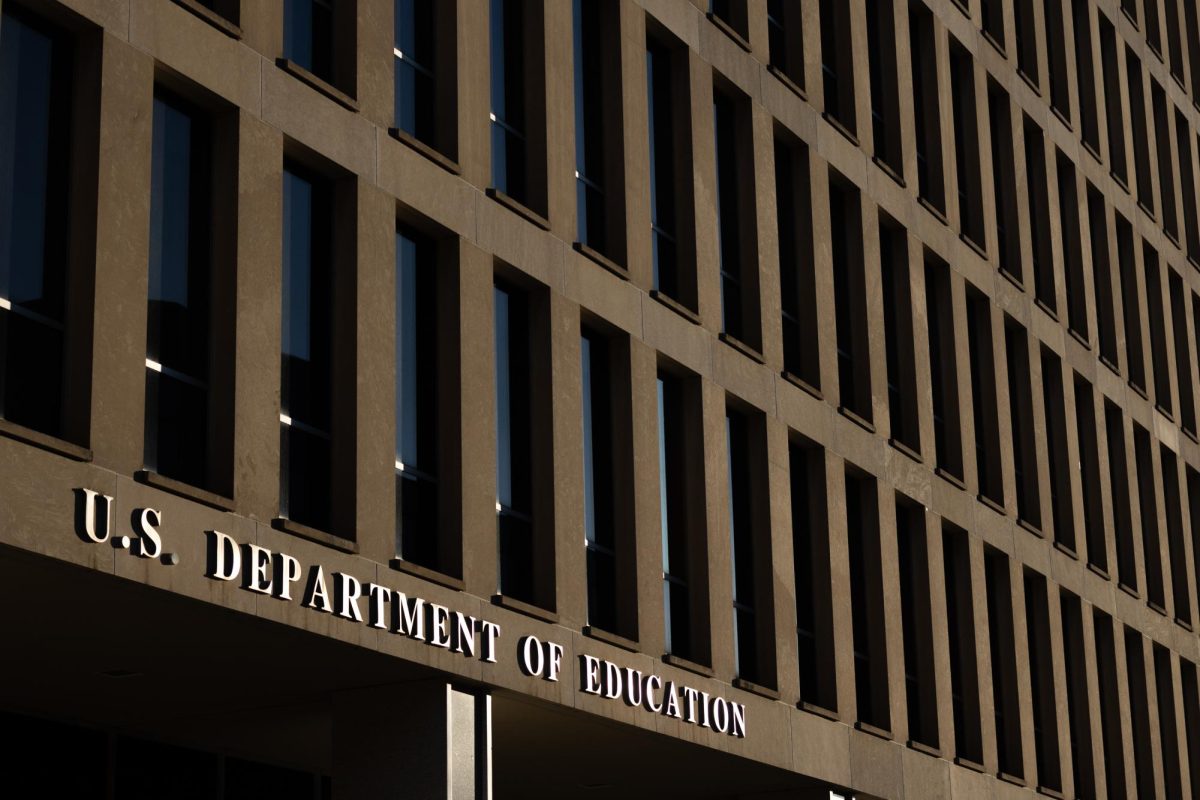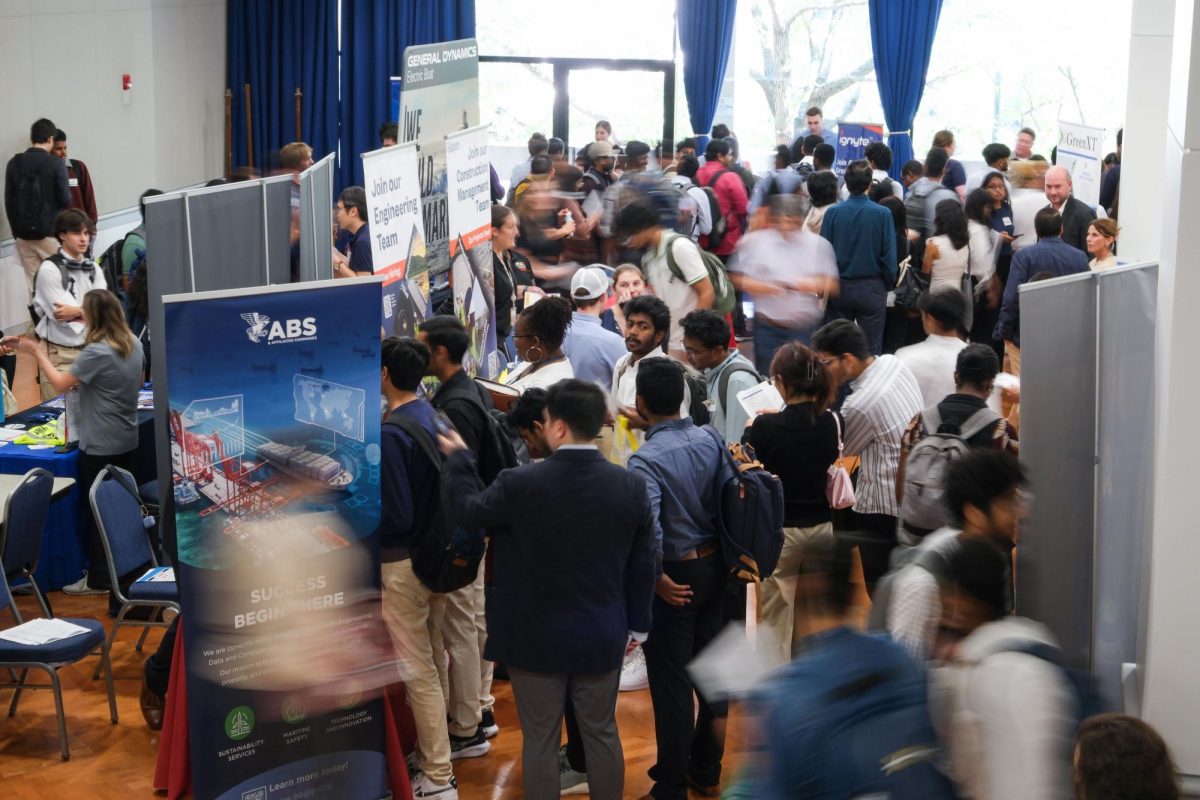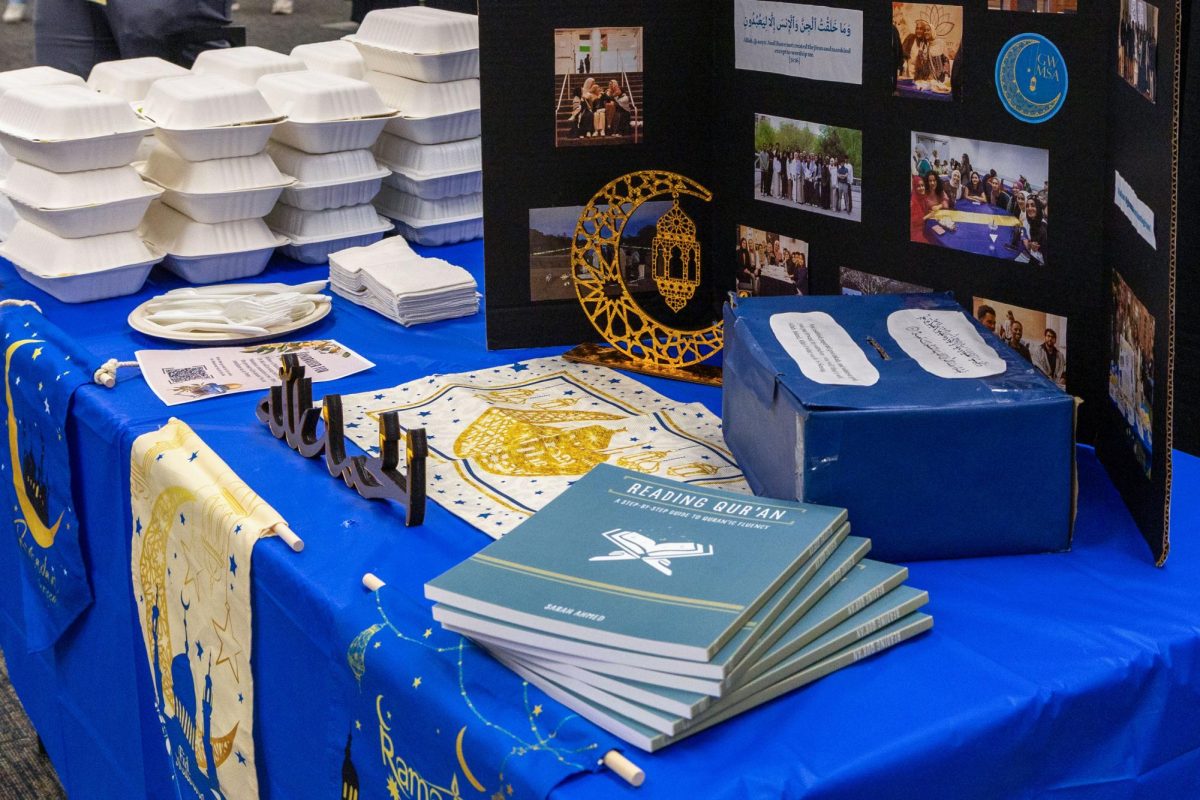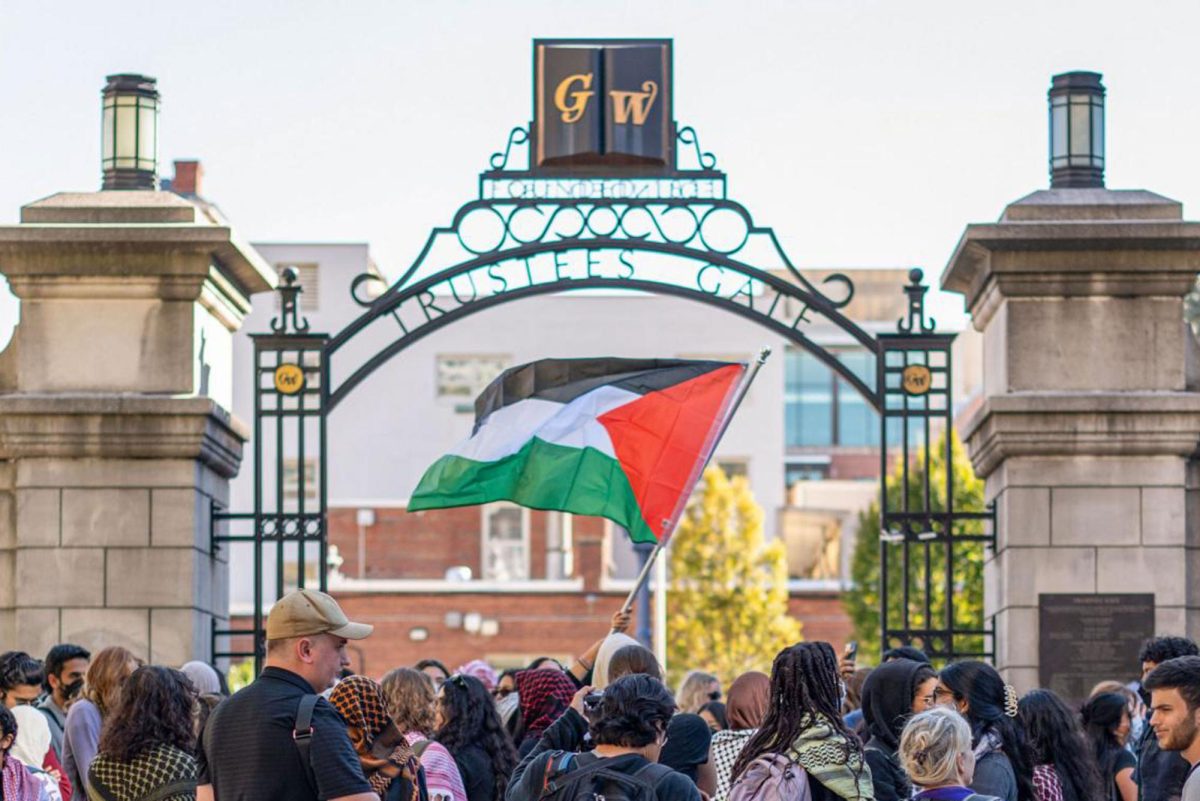Fraternity recruitment numbers bounced back to pre-pandemic totals in the fall, but chapters tallied fewer new members during the second semester of formal recruitment of the school year this spring.
The number of students who joined a fraternity remained similar to the totals from virtual recruitment last year with a 10 percent increase from about 70 last year to 77 this spring, officials said. About 45 fewer students joined an IFC chapter compared to fall recruitment, when numbers rebounded to pre-pandemic levels with a total of 121 new members last semester.
Brian Joyce, the director of Fraternity and Sorority Life, said IFC chapters distributed 87 bids during the formal recruitment process this spring, and 77 total students joined a chapter – a lower count than previous years. He said 130 students participated in the formal IFC recruitment process this spring.
IFC recruitment has been held in person during both the fall and spring semesters unlike sorority recruitment, which shifted online earlier this spring because of a rise in cases spurred on by the spreading Omicron variant. IFC chapters organized a week of recruitment activities earlier this month with a mix of in-person and virtual events.
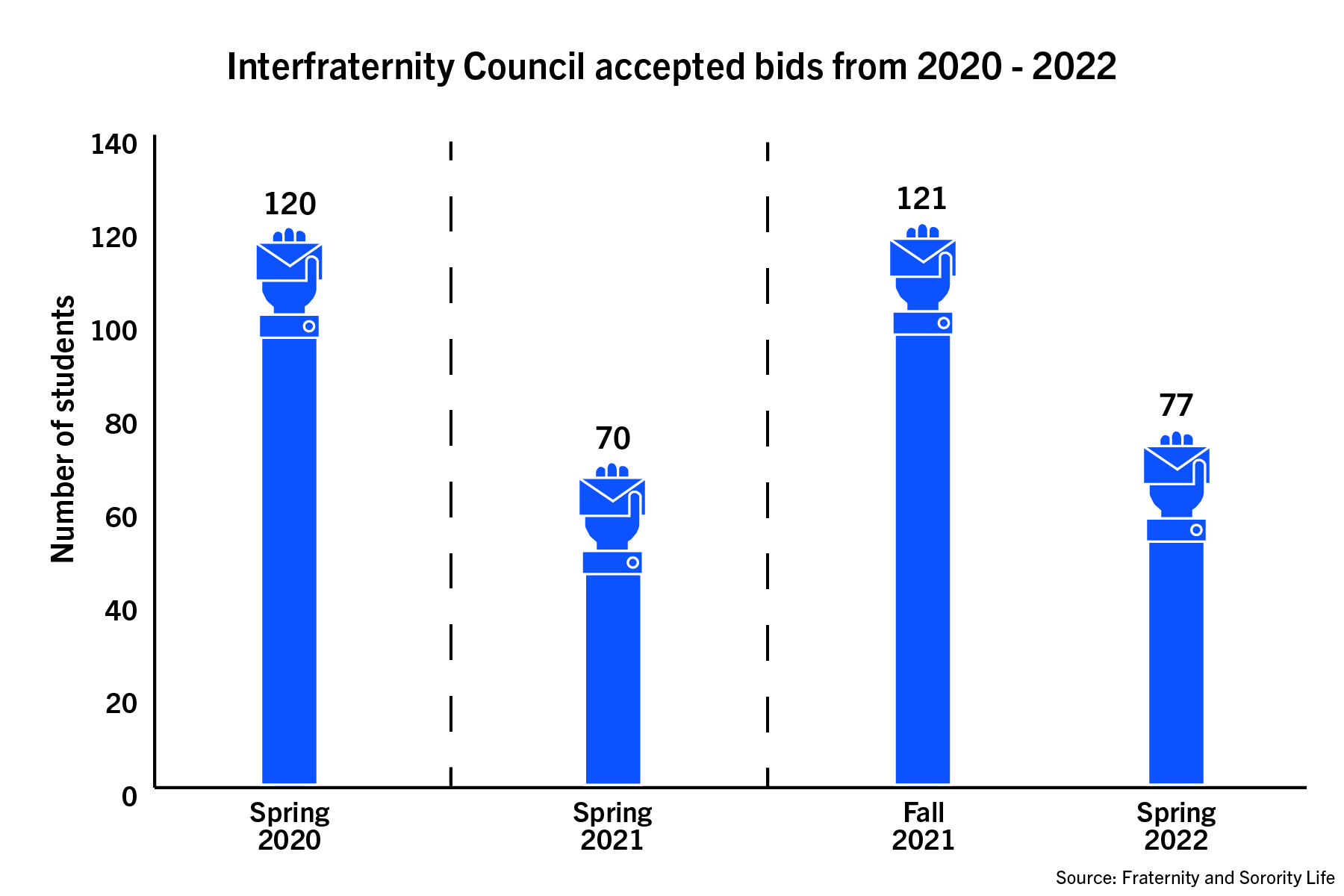
Nicholas Anastacio | Graphics Editor
This fall, IFC recruitment rebounded to pre-pandemic totals after formal fall rush expanded to include freshmen. Officials temporarily lifted a rule requiring students to complete 12 credits before rushing to help more students find community on campus through Greek Life.
IFC President Patrick Tajanlangit said IFC received permission from FSL to host mostly in-person events for potential new members to meet with fraternity members. He said the turnout of potential new members this semester was “impressive” with about 20 more potential new members participating in the spring than during the fall.
He said IFC confirmed its in-person recruitment plans with FSL after holding off on holding in-person social gatherings for two weeks earlier this semester to wait for a lower COVID-19 positivity rate that would dip below 1 percent.
“A lot of fraternities wanted in person, so I just told them if you want to be in person, we have to decrease the COVID positivity rate, just because it was a little bit higher at the time,” he said. “So, fraternities didn’t throw for two weekends, and then once it reached around 1 percent, then I was like, ‘OK, FSL is OK with it,’ so we got the green light and we did in-person rush.”
He said IFC took precautions when hosting in-person events, keeping students in open spaces without food and drinks so they could keep their masks on the entire time. Tajanlangit said IFC also held a mandatory online event that one representative from each chapter attended where Students Against Sexual Assault conducted a presentation on resources available when a sexual assault is reported.
He said the informal rush process is ongoing for new fraternities like Alpha Sigma, which joined FSL in 2019, and Phi Gamma Delta, which joined in January.
Graham Hess, a field secretary for Phi Gamma Delta who travels to chapters in the Northeastern United States to provide consulting services, said the fraternity hosted one-on-one and one-on-two Zoom calls with potential new members during the recruitment process, and the chapter added 12 new members to their fraternity.
“Our recruitment model was geared towards getting as much information as possible in the hands of our potential new members so that they could make the decision about whether Phi Gamma Delta was right for them – joining a Fraternity is an investment of one’s money and time, and we want to make sure that return on investment is positive for both the members and the organization,” he said in a statement to The Hatchet.
He said the fraternity also conducted outreach on social media during rush week and attended student organization events. He said since the chapter is so new at GW, new members will determine the future of the chapter.
“Everyone that joined or will join this semester will have a huge amount of influence over how the group develops, what they choose to do and how they want to establish an identity,” he said. “I have a ton of confidence that the men we’ve recruited can work to build a Fraternity that is fundamentally different than any other at GW!”



